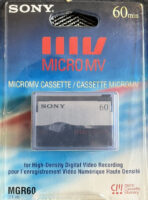Insuring Your Video Production Business
Contents
Part I: What types of Coverage will you need? (This Section)
Equipment Coverage
Rental equipment
Your own equipment
A Crash Course in Liability coverage
Watch out for Exclusions
Workmen’s Compensation
Types of Coverage for Photographers and Videographers
Part II: How to Boost Your Homeowners Policy to Cover Your Business
Start with your present policies
Add a rider
Add a floater
Purchase a home/office combination policy
Part III: How to Buy Business Insurance and Part IV – How to Buy Insurance for Your Video Shoot
Agent or Broker
How to Hire a Broker
Reducing Insurance Costs
Companies that Offer Video Production Insurance
Glossary
Insuring Your Video Production Business
When producers think of insurance they often think of insuring their own equipment or rented equipment (which is usually a condition of the rental company). Video insurance can also cover liability, vehicles, props, copyright and clearances, errors and omissions and even a particular production shoot. Your business needs an insurance program that covers property loss, liability, and a few risks that apply specifically to videographers. Let’s look at the kinds of coverage you should consider, and how to go about getting it.
Part I: What Types of Coverage Will You Need?
Equipment Coverage
If you are operating a small, part-time video business out of your home, you may think you are covered by your homeowners policy. Most homeowners policies will cover loss or damage of home office equipment, but limit the amount of coverage to $2,500. If you lose your computer, inventory, camera equipment and laser printer from your home-based office, that check will not put you back in business.
Homeowners policies can be enhanced by buying an endorsement, or rider, to the policy. These are add-ons to your policy that boost the amount paid in case of loss. For just a few dollars extra, you can increase the amount paid for loss of business equipment to $10,000. Some companies offer special computer policies to cover loss of programs and databases.
This may be a good solution for a small business, but does not cover you for liability related losses. As the business grows, you’ll want to expand to a home office policy or a business owner policy. Some of these will cover equipment used offsite, such as your camera and lighting equipment on a shoot.
Covering Rental Equipment
Video Equipment Rental houses
Sometimes you will need to provide insurance for equipment that does not belong to you. When you rent video equipment from a camera rental house, they will require you to have insurance coverage sufficient to protect their interest in the equipment. See this extensive list of camera rental houses http://videouniversity.com/directories/video-equipment-rentals-and-sales You can satisfy the rental house insurance requirement in one of two ways:
1. Have your insurance company email proof of your existing insurance coverage to the rental house, or
2. Buy a floater from the rental company. This option will cost more so it is in your interest to provide your own.
The following is a list of the typical requirements from a camera rental house we’ve named Acme Video Rentals. These apply to any insurance that you provide for the equipment.
- Acme Video Rentals* must be named as Additional Insured.
- Acme Video Rentals must be named as Additional Loss Payee.
- The Insurance Certificate must provide coverage for All Risks.
- Equipment Coverage Must be at Replacment Cost.
- The Certificate of Insurance must be sent from the client’s insurance company rather than directly from the client.
- The Certificate of Insurance must be received and approved by Acme Video Rentals in advance of any rental.
- Deposit Requirement: Every rental requires a deposit, this deposit amount is based on your issued deductible listed on the Insurance Certificate under miscellaneous and/or rented equipment section. Once the equipment has been returned with no discrepancies or current balance due, the deposit will be refunded. Please allow a minimum of 48 hours.
(* Please note Acme Video Rentals is a fictional rental company)
Covering Video Equipment You Own
The place to start is by making a written list of the video equipment you plan to cover. Include the mfg. and model number, the price you paid and the date it was purchased. Keep in mind that in the event of a loss many companies pay the depreciated value or the market value of the equipment rather than the cost of new equipment. For example, if your camcorder was purchased in 2006 for $3500 and it was stolen in 2009, the insurance policy may pay you much less than $3500.
To make sure all equipment is covered and that the insurance company knows exactly what you have in your office or van, consider producing a video inventory of your equipment. At the very least you need a written document listing the items. Store this on the cloud or other place that would be accessible if disaster struck and your vehicle was stolen or your office burned.
A Crash Course in Liability
If you decide that an endorsement on your homeowners policy will not provide sufficient coverage, consider a separate business policy. There are two types of liabilities, or risks, that your business insurance should cover. General liability is the risk of damage to other people’s property or injury to others. Your video business should carry general liability insurance in case a light stand falls during a shoot and breaks someone’s nose or damages their musical instrument.
Professional liability, often called Errors and Omissions, covers you for contract disputes, the costs of reshooting if something goes terribly wrong, and legal defense when the dispute goes to court. Even if you are conducting business in the most professional manner possible, and doing your best to please all clients, you may come across one who won’t be happy until he sees you in court. This is a risk in all businesses, and the right Errors and Omissions policy will cover the cost of your defense.
Professional liability insurance also covers you for copyright infringement cases. Why is this coverage important for video producers? Aside from the obvious risks of accidentally filming someone who doesn’t give permission, there is another risk for videographers: Music. Copyright laws apply as much to music as they do to the written word, with other complications. For instance, the songwriter may sell publishing rights to a music publisher, but a performance of the song can also be copyrighted. In addition, if the music is part of a video, you’ll also have to worry about “Synch” rights, which allow the music to be synchronized with the video images.
Your Errors and Omissions policy should cover you for mistakes in music clearance, because this is a significant risk for videographers. Take care to do what you can to clear the music, or use one of the royalty-free music services that take care of this issue (such as www.musicbakery.com). For more information on copyright risks and the use of music in your production, see http://videouniversity.com/articles/copyright-for-video-producers
Exclusions
Your insurance policy will exclude certain things. You must read the policy carefully. Among the list of exclusions may be countries where you are not covered. This can be a long list of countries with unstable governments and acts of terrorism. Here is an example of a list of excluded companies: “Afghanistan, Egypt, Jordan, Iran, Iraq, North Korea, Persian or Arabian Gulf and adjacent waters including the Gulf of Oman north of 24 degrees north, Angola, Israel, Lebanon, Syria, Libya, Eretria, Gulf of Aquaba, Somalia, Zaire, Liberia, Georgia, Haiti, Yemen, Sri Lanka, Estonia, Latvia, Lithuania, and the areas formerly known as the Union of Soviet Socialist Republics (U.S.S.R.)”–adapted from www.productioninsurance.com You can shop around for policies that will cover your international operations. As you can see, this exclusion covers roughly half of the world.
If you rent your equipment to others, there may be conditions or exclusions. Theft of your equipment from a vehicle may be covered if there are signs of forcible entry and you fill out a police report. If the equipment is damaged, the insurance company may elect to have it repaired, rather than replaced. Other exclusions may include the use of stunts or pyrotechnics. This doesn’t mean you can’t use them, just that you may have to consider buying a specialized insurance program that will cover the risks. See”How to Buy Insurance for your Video Shoot” later in this article.
Workers’ Compensation
If you hire helpers or have employees, you’ll also need to pay for Workers’ compensation insurance, which covers the cost of medical care and rehabilitation for workers injured on the job. It also compensates them for lost wages and provides death benefits for their dependents if they are killed in work-related accidents, including terrorist attacks.
Workers compensation systems vary from state to state. State statutes and court decisions control many aspects, including the handling of claims, the evaluation of impairment and settlement of disputes, the amount of benefits injured workers receive and the strategies used to control costs.
Workers compensation costs are one of the many factors that influence businesses to expand or relocate in a state, generating jobs. When premiums rise sharply, legislators often call for reforms. The last round of widespread reform legislation started in the late 1980s. In general, the reforms enabled employers and insurers to better control medical care costs through coordination and oversight of the treatment plan and return-to-work process and to improve workplace safety. Some states are now approaching a crisis once again as new problems arise.
See: The Ultimate Guide to Workers’ Compensation Insurance, published by Entrepreneur Press Entrepreneur Press; 1st edition (August 9, 2005), ISBN: 1932531505.
Types of Coverage for Photographers and Videographers
Now that we’ve covered the general types of insurance out there, let’s get specific. There are some specialized insurance programs for video businesses, photographers, and for the entertainment industry. Some of these coverages are quite pricey, so if your risks do not warrant such a high premium, don’t be talked into a policy you don’t need. (It’s like buying collision insurance on a beat up old car. You just don’t need it.) You should be aware of the coverage available, though, in case you have the opportunity to produce a high-budget project that can’t go forward without the right coverage.
The following are the types of policies that pertain to the video or photography business. This list is from:
http://www.productioninsurance.com/
- Annual Equipment Floater –Owned & Rented Equipment coverage for entertainment-related risks. This is described below as it pertains to your homeowners policy, but a floater can be purchased separately. An equipment floater is your first step. It is also part of what is known as DICE coverage, or Documentary, Industrial, Commercial, Educational Annual Production Insurance.
- DICE/Annual Productions Insurance. This type of policy covers the full spectrum of insurance needs for video production businesses including:
- Owned & Rented Equipment
- Props, Sets & Wardrobe
- Third Party Property Damage
- Negative & Faulty Stock
- General Liability
- Automobile
- Office Contents
- Workers’ Compensation
- Short Term Film & Video Production Insurance — Coverage for a single film or video production shoot without hazardous activities. Hazardous activities include stunts, fights, high scaffolding, boats, and pyrotechnics. This covers:
- Single Film/Video/Photography Shoots Up to 90 Days — General Liability
- Owned & Rented Equipment
- Workers’ Compensation
- Automobile
- Negative Film & Faulty Stock
- Third Party Property Damage
- Foreign Production Insurance Coverage for a single film or video production shot anywhere outside of the US and Canada. You may need special coverage if you are filming overseas. Many policies exclude certain countries. Foreign Production Insurance covers:
- Property
- Liability
- Hired & Non-Owned Automobile
- Workers’ Compensation
- Travel Insurance
- Movie Boat Insurance? if you are filming on the water, you may need coverage for filming on boats, barges, platforms, marinas, docks, wharves and piers. This covers:
- Hull & Machinery
- Running Down Clause
- Protection & Indemnity
- Jones Act
- Excess Liability
- Charterer’s Liability
- Wharfinger’s Liability
- Tower’s Liability
- Multimedia Production– E&O Errors & Omissions coverage for media production, distribution and broadcast covering producers and distributors of Motion Pictures, Radio Programs and Television Programs.
These short term policies can cover your operations on a production in which you have invested considerable time and resources. Each project will have its own risks, and you should consult a qualified broker to be sure you get the required coverage.
Part II: How to Boost Your Homeowners Policy to Cover Your Business
Part III: How to Buy Business Insurance and Part IV – How to Buy Insurance for Your Video Shoot






Very helpful primer!
Wow what a wealth of information. Thanks for this post. Does anyone have any cautionary tales from his or her own experience where insurance either saved them or let them down? Thanks
Very, very helpful. It’s amazing that there isn’t more information about this out there. Thanks for the useful info!
Great article! I shoot mostly wedding videos but I know the value and piece of mind insurance gives me.
Thanks. Great information and the best I’ve read on this subject to date for our area of work.
Very thorough and detailed overview. Thank you! As an independent documentary filmmaker, there is rarely extra money to throw around, therefore insurance is something I’ve never seriously considered. Plus, I’ve always assumed it would be too expensive! Thankfully, there have been no serious accidents on any of my shoots, so I’ve been lucky so far. But you’ve opened my eyes that for relatively little money (even a few extra $$ per month) I can protect my production company, gear and crew.
I was just speaking with my State Farm insurance agent today getting a quote on insurance options. Basically it came down to $60/mo for 1 million in liability and $20k equipment while outside studio and $30k inside studio. $500 deductible while out-of-studio, otherwise $1000 deductible for umbrella liability/instudio coverage
Curious if others have found cheaper from a reputable source.